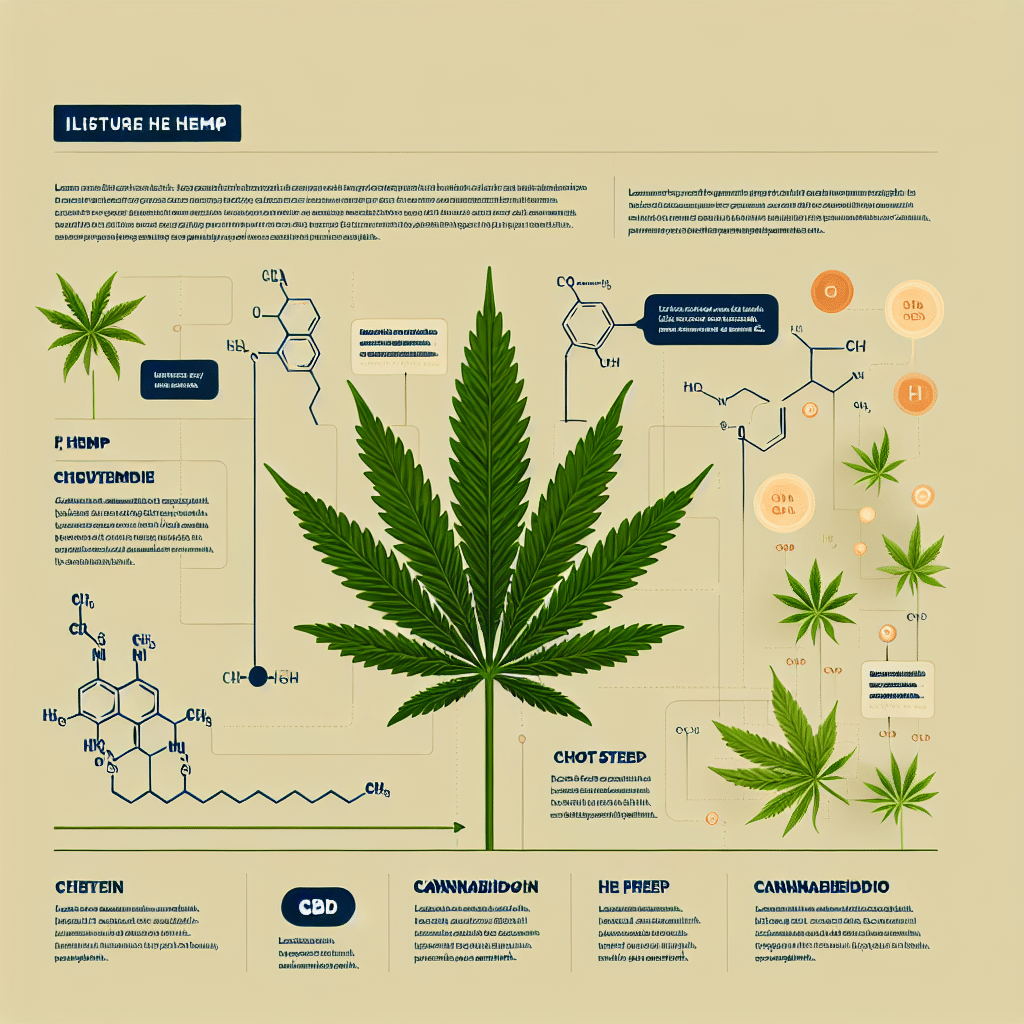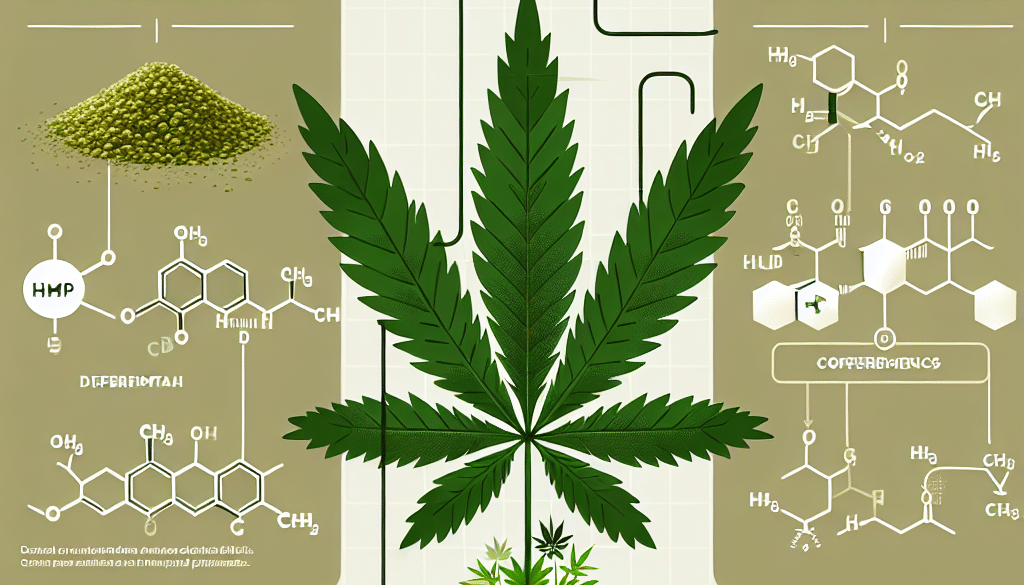Is There CBD In Hemp Protein?
-
Table of Contents
- CBD in Hemp Protein: Unraveling the Nutritional Composition
- Understanding Hemp Protein
- Is There CBD in Hemp Protein?
- Legal Considerations and CBD Content
- Health Benefits of Hemp Protein
- Comparing Hemp Protein to Other Plant Proteins
- Case Studies and Research on Hemp Protein
- Consumer Considerations When Choosing Hemp Protein
- Conclusion: Hemp Protein and CBD Content
- Discover ETprotein’s Premium Plant Proteins
CBD in Hemp Protein: Unraveling the Nutritional Composition

As the wellness industry continues to evolve, consumers are becoming increasingly curious about the ingredients in their health supplements. Hemp protein, a product derived from the seeds of the Cannabis sativa plant, has gained popularity for its nutritional benefits. However, there’s a common question that arises: does hemp protein contain CBD (cannabidiol)? This article delves into the composition of hemp protein and its relationship with CBD, providing a comprehensive understanding of what consumers can expect from this plant-based protein source.
Understanding Hemp Protein
Hemp protein is made by grinding the seeds of the hemp plant into a fine powder. It’s known for being a complete protein, containing all nine essential amino acids that the body cannot produce on its own. Hemp seeds are also rich in fiber, healthy fats, and minerals. But when it comes to CBD, the non-psychoactive compound found in cannabis plants, the answer isn’t as straightforward as one might think.
Is There CBD in Hemp Protein?
The short answer is that hemp protein typically contains little to no CBD. CBD is found in the leaves and flowers of the hemp plant, not in the seeds from which the protein is derived. During the production process, the oil is extracted from the seeds, and while this hemp seed oil contains trace amounts of CBD, the remaining protein powder is virtually free of cannabinoids.
- Hemp seeds are processed to remove oil, resulting in a CBD-poor residue.
- The focus of hemp protein is on nutritional content, not cannabinoid content.
- Legal restrictions on THC content also limit the presence of other cannabinoids in hemp products.
Legal Considerations and CBD Content
In many regions, hemp products are legal only if they contain less than 0.3% THC, the psychoactive compound in cannabis. This regulation also impacts the presence of CBD in hemp-based products. Manufacturers are careful to ensure that their products comply with legal THC limits, which often means that any CBD content is minimal and incidental.
Health Benefits of Hemp Protein
Despite the negligible CBD content, hemp protein is still a powerhouse of nutrition. It’s an excellent source of plant-based protein, making it a favorite among vegetarians and vegans. Hemp protein is also easily digestible and does not contain the allergens found in soy or dairy proteins.
- Complete protein source with all essential amino acids.
- Rich in fiber, promoting digestive health.
- Contains healthy fats, including omega-3 and omega-6 fatty acids.
- Provides minerals such as iron, magnesium, and zinc.
Comparing Hemp Protein to Other Plant Proteins
When compared to other plant proteins like pea or rice protein, hemp protein holds its own. It may have a lower protein content per serving, but its nutritional profile is more balanced, with a blend of fiber, fats, and minerals that other plant proteins lack.
- Hemp protein has a more complete amino acid profile.
- It’s less processed than other protein isolates.
- The fiber content in hemp protein supports a healthy gut microbiome.
Case Studies and Research on Hemp Protein
Several studies have highlighted the benefits of hemp protein. Research indicates that the edestin and albumin protein types found in hemp are highly digestible. Moreover, the omega fatty acids in hemp protein have been linked to improved heart health and reduced inflammation.
Consumer Considerations When Choosing Hemp Protein
For those interested in the potential benefits of CBD, hemp protein alone may not be the best choice. However, for individuals looking for a nutritious, plant-based protein, hemp protein is an excellent option. It’s important to choose high-quality, organic hemp protein to avoid contaminants and ensure the best nutritional value.
- Check for third-party testing and certifications.
- Opt for organic, non-GMO hemp protein.
- Consider the environmental impact of your protein choice.
Conclusion: Hemp Protein and CBD Content
In summary, while hemp protein comes from the same plant as CBD, it does not serve as a significant source of this cannabinoid. The value of hemp protein lies in its nutritional profile, offering a sustainable, complete protein option for those looking to supplement their diet. For those specifically seeking CBD benefits, other hemp-derived products would be more appropriate.
Discover ETprotein’s Premium Plant Proteins
If you’re in the market for high-quality plant proteins, ETprotein offers a range of products that cater to various dietary needs and preferences. Their selection includes organic rice protein, pea protein, and other seed-based proteins, all characterized by a neutral taste and non-GMO, allergen-free attributes. With a commitment to purity and quality, ETprotein is a go-to source for your protein requirements.
About ETprotein:
ETprotein, a reputable protein and L-(+)-Ergothioneine (EGT) Chinese factory manufacturer and supplier, is renowned for producing, stocking, exporting, and delivering the highest quality organic bulk vegan proteins and L-(+)-Ergothioneine. They include Organic rice protein, clear rice protein, pea protein, clear pea protein, watermelon seed protein, pumpkin seed protein, sunflower seed protein, mung bean protein, peanut protein, and L-(+)-Ergothioneine EGT Pharmaceutical grade, L-(+)-Ergothioneine EGT food grade, L-(+)-Ergothioneine EGT cosmetic grade, L-(+)-Ergothioneine EGT reference grade and L-(+)-Ergothioneine EGT standard. Their offerings, characterized by a neutral taste, non-GMO, allergen-free attributes, with L-(+)-Ergothioneine purity over 98%, 99%, cater to a diverse range of industries. They serve nutraceutical, pharmaceutical, cosmeceutical, veterinary, as well as food and beverage finished product distributors, traders, and manufacturers across Europe, USA, Canada, Australia, Thailand, Japan, Korea, Brazil, and Chile, among others.
ETprotein specialization includes exporting and delivering tailor-made protein powder and finished nutritional supplements. Their extensive product range covers sectors like Food and Beverage, Sports Nutrition, Weight Management, Dietary Supplements, Health and Wellness Products, and Infant Formula, ensuring comprehensive solutions to meet all your protein needs.
As a trusted company by leading global food and beverage brands and Fortune 500 companies, ETprotein reinforces China’s reputation in the global arena. For more information or to sample their products, please contact them and email sales(at)ETprotein.com today.














